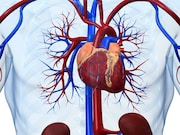Stem Cell Transplant Slows Progression of Multiple Sclerosis
Findings from small randomized trial comparing nonmyeloablative HSCT with disease-modifying tx
USPSTF Recommends Risk-Reducing Meds for Breast Cancer
Risk-reducing medications recommended for women at high risk, not for routine use
Opioids Now More Deadly for Americans Than Traffic Accidents
Preventable injuries are the third leading cause of death in the United States
Guideline Issued for Treatment of Mild/Moderate Ulcerative Colitis
Standard-dose mesalamine or diazo-bonded 5-ASA recommended versus low-dose mesalamine
Recalling Positive Memories May Cut Depression Risk for Teens
In teens with early-life stress, positive memory specificity linked to lower depressive symptoms
Vitamin D Supplementation Can Help Cut COPD Exacerbations
Review shows supplementation only effective for baseline vitamin D levels <25 nmol/L
Study Explores Influence of Genetics, Environment in Disease
Genetic component for 40 percent of phenotypes studied; 25 percent have environmental risk factors
Cardiometabolic Risk Up With Tourette, Chronic Tic Disorder
Higher risks seen for obesity, type 2 diabetes, circulatory system diseases
American College of Physicians Releases 7th Edition of Ethics Manual
Manual focuses on patient-physician relationship in different scenarios, including telemedicine
Young-Onset Type 2 Diabetes Tied to Increased Hospitalization Risk
Excess hospitalizations seen across life span with large burden of mental illness in young adulthood














